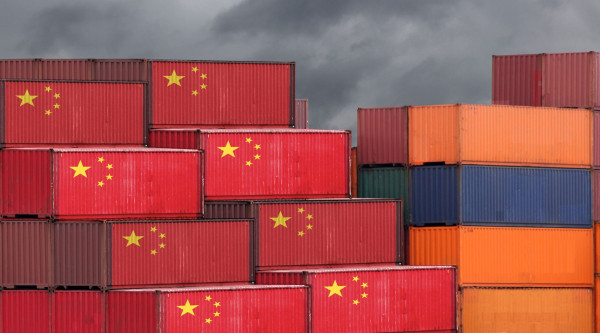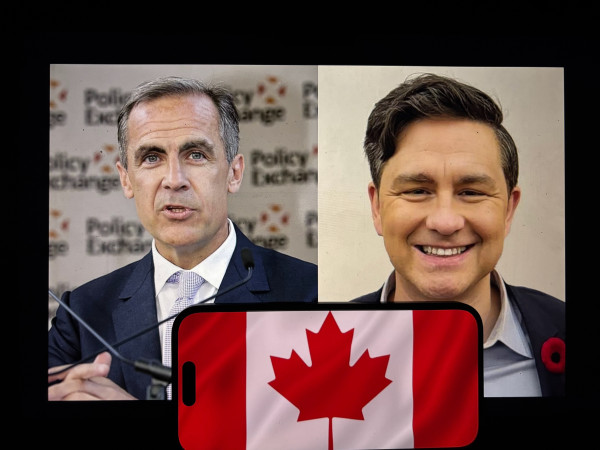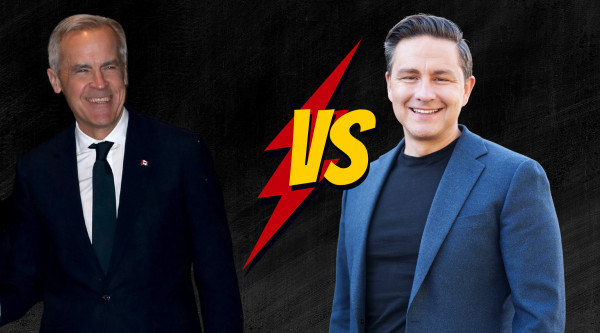Since Confederation, the Conservative Party of Canada (CPC) has repeatedly demonstrated political ineptitude, marked by a long history of division and unity within its party, particularly since the turn of the 21st century, as it has moved to the right of center with racist undertones. We haven’t forgotten Stephen Harper’s infamous 'dog whistle politics' comment about “old stock” Canadians.
Even with Brian Mulroney’s 1984 landslide win, the next ‘free-trade election’ divided Canada. While Mulroney deserves credit for his achievements, his party legacy is perhaps best known for the failed Meech Lake Accord, which, instead of bringing Quebec into the Constitution, gave rise to the Bloc Québécois.
After Mulroney, the new Conservative leader, Kim Campbell, had a brief tenure as Prime Minister from June to November 1993, during which time the CPC was obliterated in the subsequent election. We must also remember Joe Clark and the non-confidence vote that forced him to resign as PM.
The current CPC is the result of the 2003 merger between the Progressive Conservative Party and the right-leaning Canadian Alliance, spearheaded by Stephen Harper, which was also born out of discord and infighting. Since Harper left office, we’ve witnessed a sideshow-like series of weak leaders, like Andrew Scheer and Erin O’Toole, each claiming party leadership at different times through backroom dealings. Trudeau beat them both.
So, Pierre Poilievre’s ascent to party leadership had more to do with slim leader pickings at the bottom of the very shallow CPC talent pool; electing a loyal party lifer rather than a strong leader with a good vision for Canada.
The Liberals, on the other hand, have always played it right down the middle, consistently centrist and avoiding internal bickering, divisiveness, and instability that could hurt the party. This strategy has been successful over time and has appealed to the majority of the Canadian population.
This is why the Liberals are so often referred to as the Natural Governing Party of Canada, as they’ve governed Canada for 69 years throughout the 20th century.
It started with Wilfrid Laurier, prime minister from 1896–1911, then Mackenzie King, the longest-serving prime minister in Canadian history, from 1921–1930, and again from 1935–1948. He was succeeded by Louis St. Laurent, who continued the Liberal streak until 1957. Effectively, the LPC governed Canada from 1935 to 1957. Then Lester Pearson, 1963–68, Pierre Trudeau, 1968–79 and again from 1980–1984, Jean Chretien, 1993–2003, with a record three straight majority governments (1993, 1997, and 2000). Being the first Liberal prime minister to do so since Prime Minister Sir Wilfrid Laurier in 1900, 1904, and 1908.
Harper took over and served as the 22nd prime minister of Canada from 2006 to 2015, but once again, and in typical Conservative fashion, he left the country divided. Justin Trudeau’s younger optimism, centrist and modern leadership appeal was in contrast to Harper’s coldness and perceived lack of empathy.
Now, at another critical time in our history, Mark Carney, another Liberal leader, seems to be the right leader at the right time in our history.
What is consistent about Canadians is that we are a people of compromise and working together, of course, this was how Canada was formed — through Confederation. Two prominent figures often cited as the “Fathers of Confederation” are John A. Macdonald (English side) and George-Étienne Cartier (French side). The 1867 Canadian Confederation was a compromise between French and English Canada, leading to the creation of the Dominion of Canada on July 1, 1867. This process united the British colonies of Nova Scotia, New Brunswick, and the Province of Canada (which was then divided into Canada East (Quebec) and Canada West (Ontario)). The Western provinces would be added later.
Therefore, compromise and reason are very much part of our Canadian culture and traditions. But the right-wing Pierre Poilievre and CPC threaten all that, our Canadian identity, in trying to swing us to a “Canadian MAGA,” a version of the American populist MAGA movement.
Mackenzie King got it right when he described Canadians as moderate, compromising and agreeable, particularly about our government, economy, and social systems.
An Election Like Never Before
We may have dodged a bullet with Pierre Poilievre and his Trump playbook. He almost had us! But inauthentic leaders like Poilievre, with nothing but hot air and dunce bluster and no semblance of intellectual capacity, usually fail in the end. These leaders are lacking character and judgment; ultimately, they fall apart under the bright lights of scrutiny.
Poilievre is a disingenuous copycat leader and career politician who resorts to profiting from the suffering of others. A master of the politics of division and sloganeering, he has plotted his way to leadership through anger, misinformation, and a right-wing agenda to serve himself and his base rather than the country. However, Trump and his 51st-state rhetoric messed him up.
When confronted with the stark reality of our future existence being threatened, many Canadians' human instinct for self-preservation kicked in. Canadians started to pay serious attention and began to see Pierre as a “baby-Trump”, and that scared the hell out of us! Canadians came to realize, in a hurry, that serious leadership was now required for these serious times. Canadians immediately began to shift away from the fakeness and sloganeering of Poilievre and the CPC.
Trump’s rhetoric about Canada becoming the 51st state, threatening our sovereignty, and attacking Canada with his nonsensical tariffs has effectively galvanized Canadians against Trump and the US— Elbows Up!
“Trump’s intervention into the existence of Canada has really traumatized the country,” Former Prime Minister Jean Chrétien told The Globe and Mail in an interview recently. “And Canadians are deciding which of the two main parties can best represent our interests and make sure we remain a completely independent country.”
This election is a binary choice between Carney and Poilievre: LPC versus the CPC. It’s about the future of our economy, prosperity and identity, and which leader is best suited to lead and protect Canada in turbulent times.
And when comparing Carney’s qualifications or resume with Poilievre’s lack of any, no sensible Canadian should be voting for Poilievre, unless they are part of the misinformed and wilfully ignorant right.
Poilievre’s 25-point lead in the polls vanished overnight. Never before seen in Canadian history. And according to the latest tracking by Nanos Research for The Globe and Mail, conducted between April 15 and April 17, the Liberals have the support of 45 per cent of decided voters, while the Conservatives have 37 per cent.
Poilievre is just throwing anything at the board now to see what sticks, from bringing back plastic straws to the very serious saying he’ll invoke the Notwithstanding Clause in the 1982 Constitution, as he sees fit. This is a slippery slope which threatens our rights and freedoms that have been granted to all Canadians in the Charter of Rights and Freedoms of Canada.
I voted early for the first time in the advance polls. There was a lineup that I had never experienced before at my polling station, even during normal election day voting. A new early voting record was set, with over two million Canadians casting their ballots on the first day of advance polls, says Elections Canada. Even my young adult children have become registered Liberals (no influence from me, of course) and are eager to cast their votes.
Usually, early voting favours the progressives, so I predict that the Liberals will outperform and win a larger majority than the polling currently predicts.
The NDP has been sidelined in this election due to the risk of voting for them and risking the Conservatives winning. It is unclear whether the NDP will ever recover because, at this point, they seem to be on the verge of being decimated. The Bloc Québécois, on the other hand, is simply irrelevant.
Even in traditional Bloc strongholds, we are witnessing significant shifts toward the Liberals. Québécois voters have logically concluded that they are better off in a strong Canada than outside of it. I’m sure many separatists have pondered what if they had succeeded in a past referendum. Right now, they would be in Donald Trump’s crosshairs and would likely be America’s 51st state. Where would their Sovereignty and Distinct Society be now? Common sense and practicality are prevailing in Canada now, even the separatists have come to terms with reality.
“It’s the economic side of him that I like; he’s calm, and he doesn’t talk for nothing,” Ms. Leclerc said. “Trump is unpredictable, and I think he’s a bit of a liar. He’s playing with us all like puppets … Now I think Canada needs to be as united as possible.”
The above concern comes from Chantal Leclerc, a Quebec dairy farmer, interviewed by the Globe and Mail, in the traditionally secure Bloc Québécois riding of Trois-Rivières. It’s a place with a nationalist streak, and once home to the late Premier and defender of old-school Quebec values, Maurice Duplessis. The Bloc Québécois have won eight of the 10 elections in urban Trois-Rivières since the party’s creation in 1993.
Trump and MAGA have reminded us of who we are and, more importantly, who we don’t want to be — American! Canadians are full-throatedly ready to reject the right-wing populist politics of Trump wannabe Pierre Poilievre, whose chickens are now coming home to roost.
The significance of Pierre Poilievre losing a massive 25-point lead can’t be denied! This will go down as a failure of epic proportions. For us golf fans out there, Poilievre will be likened to and characterized as the Jean van de Velde of politics, famous for his epic collapse at the British Open in 1999. van de Velde stood with a significant three-stroke lead on the final hole of the tournament, but he ended up losing by squandering his lead due to a lack of genuine skill, a real game and mistakes made under pressure. He was never the guy to win, and the golf gods intervened. A similar occurrence has happened to Pierre Poilievre.
Canada now has a chance to lead in the global community due to our centrist and practical approach to politics and not taking hard ideological stances—showing how to stand up to Trump and wack right-wing populist politics.
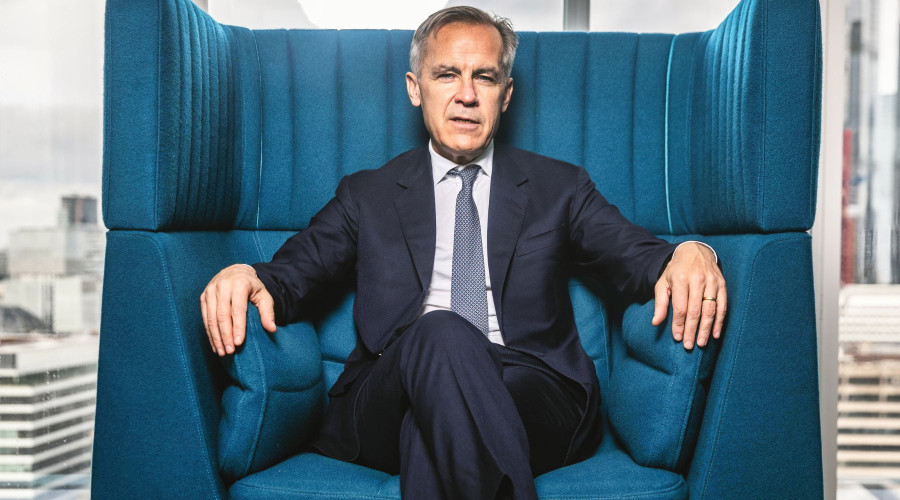
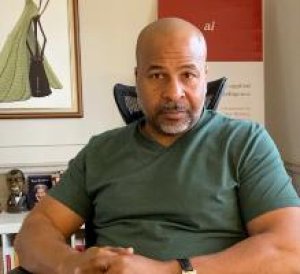 By
By 



